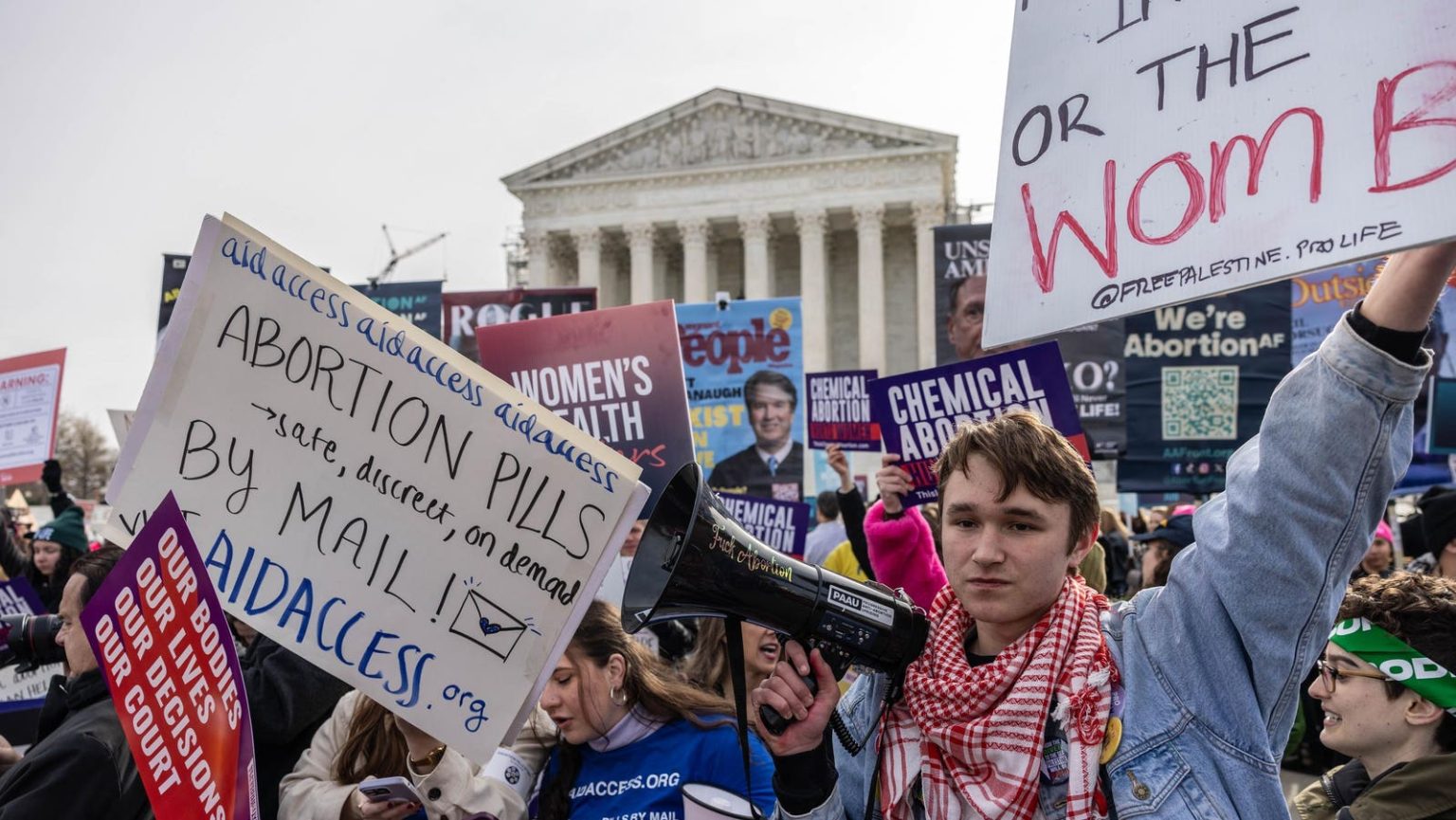In a pivotal abortion case, Supreme Court justices indicated on Tuesday that they are unlikely to restrict the federal approvals of the abortion drug mifepristone. The court heard two consolidated cases brought by the Biden administration and mifepristone manufacturer Danco Laboratories challenging an appeals court ruling that rolled back the drug’s approval. Mifepristone, along with misoprostol, is taken during a medication abortion and has been approved by the FDA since 2000, with access expanded in 2016 and 2021. Anti-abortion groups, backed by the Alliance Defending Freedom, are seeking to limit access to the drug and revert to the more restrictive guidelines from before 2016.
During the hearing, justices expressed skepticism about the standing of the parties challenging mifepristone’s approval. Justices Ketanji Brown Jackson, Brett Kavanaugh, and Amy Coney Barrett raised concerns about the breadth of the restrictions being sought and the existing provisions for physicians to decline performing abortions on moral or religious grounds. Justice Neil Gorsuch also indicated that the case may be part of a trend of attempts to turn small lawsuits into nationwide legislative decisions. Even Justice Clarence Thomas, who expressed some support for restricting mifepristone, questioned the arguments put forth by anti-abortion advocates.
The court is expected to issue its ruling on the case before the end of the term in late June. Mifepristone remains available with the expanded approvals while the court deliberates. There is uncertainty about the potential impact of rolling back mifepristone’s approval, as medication abortion has become a primary method for patients to access abortion, particularly in states with bans on the procedure. Abortion rates have actually increased since Roe v. Wade was overturned, in part due to the availability of medication abortion. Abortion providers may still be able to offer misoprostol-only regimens via telehealth if mifepristone is restricted, but limiting access to only the first seven weeks of pregnancy could have significant implications.
A surprising fact is that medication abortion prescribed using telehealth has been found to be as safe and effective as when taken in a clinical setting. Studies have consistently shown that medication abortion with mifepristone is safe and effective for terminating pregnancies. Pharmaceutical companies have cautioned that a ruling against mifepristone could lead to further challenges against other controversial drugs. The mifepristone dispute is the most significant legal case regarding abortion since the overturning of Roe v. Wade, with state-level bans and restrictions on abortion leading to a focus on medication abortion as a key pathway to maintaining access to the procedure. Anti-abortion advocates have targeted medication abortion in addition to traditional abortion services, leading to legal battles over access to these drugs. The case challenging mifepristone’s approval was initiated in November 2022 and has made its way to the Supreme Court following lower court decisions.


